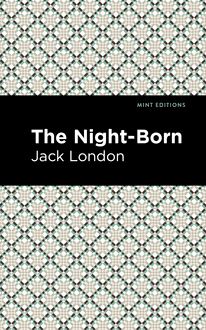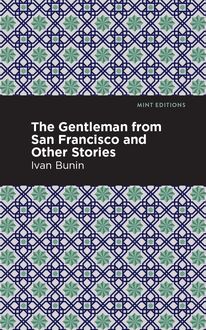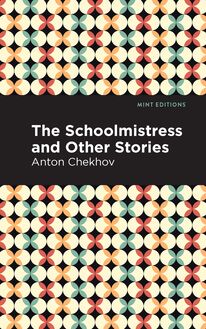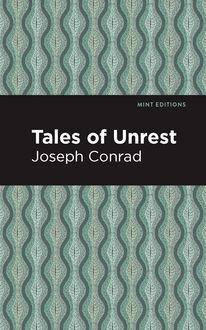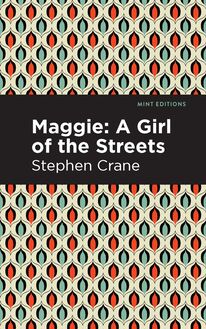-
 Univers
Univers
-
 Ebooks
Ebooks
-
 Livres audio
Livres audio
-
 Presse
Presse
-
 Podcasts
Podcasts
-
 BD
BD
-
 Documents
Documents
-
- Cours
- Révisions
- Ressources pédagogiques
- Sciences de l’éducation
- Manuels scolaires
- Langues
- Travaux de classe
- Annales de BEP
- Etudes supérieures
- Maternelle et primaire
- Fiches de lecture
- Orientation scolaire
- Méthodologie
- Corrigés de devoir
- Annales d’examens et concours
- Annales du bac
- Annales du brevet
- Rapports de stage
La lecture à portée de main
Vous pourrez modifier la taille du texte de cet ouvrage
Découvre YouScribe en t'inscrivant gratuitement
Je m'inscrisDécouvre YouScribe en t'inscrivant gratuitement
Je m'inscrisEn savoir plus
Vous pourrez modifier la taille du texte de cet ouvrage
En savoir plus

Description
Bayou Folk (1894) is a short story collection by American author Kate Chopin. Chopin, a pioneering feminist and gifted writer, sought to portray the experiences of Southern women and ethnic minorities struggling to survive in an era decimated by war and economic hardship. Bayou Folk collects twenty-three of her stories.
“Beyond the Bayou” is the story of La Folle, a thirty-five year old black woman living on the outskirts of a Louisiana plantation. Traumatized with memories of the war, she has spent her entire life on one side of the bayou. From her modest cabin, she entertains visits from the owner of Bellissime plantation and his young children. La Folle holds a special fondness for Chéri, the owner’s young son, whom she entertains with stories of a world she has seldom, if ever, seen, a world “beyond the bayou.” When a terrible accident occurs, however, she is forced to face her deepest fears, or else suffer the most unthinkable loss of all. In “Désirée's Baby,” the most acclaimed of Chopin’s short stories, a young woman married to plantation owner Armand Aubigny awaits the birth of her first child. When the child is born with a racially ambiguous appearance, however, Aubigny quickly blames his wife, whose parents are suspected of having African American heritage. Banished from the plantation, Désirée leaves her young family behind, unaware of the secret her husband declined to share. Bayou Folk showcases the literary talent of Kate Chopin, a writer with an eye for characters on the fringe, people whose hearts often clash with the rules and demands of culture in the American South.
With a beautifully designed cover and professionally typeset manuscript, this edition of Kate Chopin’s Bayou Folk is a classic of American literature reimagined for modern readers.
Sujets
Informations
| Publié par | Mint Editions |
| Date de parution | 23 février 2021 |
| Nombre de lectures | 0 |
| EAN13 | 9781513276625 |
| Langue | English |
| Poids de l'ouvrage | 1 Mo |
Informations légales : prix de location à la page 0,0450€. Cette information est donnée uniquement à titre indicatif conformément à la législation en vigueur.
Extrait
Bayou Folk
Kate Chopin
Bayou Folk was first published in 1894.
This edition published by Mint Editions 2021.
ISBN 9781513271620 | E-ISBN 9781513276625
Published by Mint Editions®
minteditionbooks.com
Publishing Director: Jennifer Newens
Design & Production: Rachel Lopez Metzger
Project Manager: Micaela Clark
Typesetting: Westchester Publishing Services
C ONTENTS A N O -A CCOUNT C REOLE I N AND O UT OF O LD N ATCHITOCHES I N S ABINE A V ERY F INE F IDDLE B EYOND THE B AYOU O LD A UNT P EGGY T HE R ETURN OF A LCIBIADE A R UDE A WAKENING T HE B ÊNITOUS ’ S LAVE D ÉSIRÉE ’ S B ABY A T URKEY H UNT M ADAME C ÉLESTIN ’ S D IVORCE L OVE ON THE B ON -D IEU L OKA B OULÔT AND B OULOTTE F OR M ARSE C HOUCHOUTE A V ISIT TO A VOYELLES A W IZARD FROM G ETTYSBURG M A ’ AME P ÉLAGIE A T THE ’C ADIAN W ALL L A B ELLE Z ORAÏDE A G ENTLEMAN OF B AYOU T ÊCHE A L ADY OF B AYOU S T . J OHN
A N O -A CCOUNT C REOLE
I
O NE AGREEABLE AFTERNOON IN LATE autumn two young men stood together on Canal Street, closing a conversation that had evidently begun within the club-house which they had just quitted.
“There’s big money in it, Offdean,” said the elder of the two. “I would n’t have you touch it if there was n’t. Why, they tell me Patchly ’s pulled a hundred thousand out of the concern a’ready.”
“That may be,” replied Offdean, who had been politely attentive to the words addressed to him, but whose face bore a look indicating that he was closed to conviction. He leaned back upon the clumsy stick which he carried, and continued: “It’s all true, I dare say, Fitch; but a decision of that sort would mean more to me than you’d believe if I were to tell you. The beggarly twenty-five thousand’s all I have, and I want to sleep with it under my pillow a couple of months at least before I drop it into a slot.”
“You ’ll drop it into Harding & Offdean’s mill to grind out the pitiful two and a half per cent commission racket; that ’s what you ’ll do in the end, old fellow—see if you don’t.”
“Perhaps I shall; but it’s more than likely I shan’t. We ’ll talk about it when I get back. You know I’m off to north Louisiana in the morning”—
“No! What the deuce”—
“Oh, business of the firm.”
“Write me from Shreveport, then; or wherever it is.”
“Not so far as that. But don’t expect to hear from me till you see me. I can’t say when that will be.”
Then they shook hands and parted. The rather portly Fitch boarded a Prytania Street car, and Mr. Wallace Offdean hurried to the bank in order to replenish his portemonnaie, which had been materially lightened at the club through the medium of unpropitious jack-pots and bobtail flushes.
He was a sure-footed fellow, this young Offdean, despite an occasional fall in slippery places. What he wanted, now that he had reached his twenty-sixth year and his inheritance, was to get his feet well planted on solid ground, and to keep his head cool and clear.
With his early youth he had had certain shadowy intentions of shaping his life on intellectual lines. That is, he wanted to; and he meant to use his faculties intelligently, which means more than is at once apparent. Above all, he would keep clear of the maelstroms of sordid work and senseless pleasure in which the average American business man may be said alternately to exist, and which reduce him, naturally, to a rather ragged condition of soul.
Offdean had done, in a temperate way, the usual things which young men do who happen to belong to good society, and are possessed of moderate means and healthy instincts. He had gone to college, had traveled a little at home and abroad, had frequented society and the clubs, and had worked in his uncle’s commission-house; in all of which employments he had expended much time and a modicum of energy.
But he felt all through that he was simply in a preliminary stage of being, one that would develop later into something tangible and intelligent, as he liked to tell himself. With his patrimony of twenty-five thousand dollars came what he felt to be the turning-point in his life,—the time when it behooved him to choose a course, and to get himself into proper trim to follow it manfully and consistently.
When Messrs. Harding & Offdean determined to have some one look after what they called “a troublesome piece of land on Red River,” Wallace Offdean requested to be intrusted with that special commission of land-inspector.
A shadowy, ill-defined piece of land in an unfamiliar part of his native State, might, he hoped, prove a sort of closet into which he could retire and take counsel with his inner and better self.
II
W HAT H ARDING & O FFDEAN HAD called a piece of land on Red River was better known to the people of Natchitoches 1 parish as “the old Santien place.”
In the days of Lucien Santien and his hundred slaves, it had been very splendid in the wealth of its thousand acres. But the war did its work, of course. Then Jules Santien was not the man to mend such damage as the war had left. His three sons were even less able than he had been to bear the weighty inheritance of debt that came to them with the dismantled plantation; so it was a deliverance to all when Harding & Offdean, the New Orleans creditors, relieved them of the place with the responsibility and indebtedness which its ownership had entailed.
Hector, the eldest, and Gr é goire, the youngest of these Santien boys, had gone each his way. Placide alone tried to keep a desultory foothold upon the land which had been his and his forefathers’. But he too was given to wandering—within a radius, however, which rarely took him so far that he could not reach the old place in an afternoon of travel, when he felt so inclined.
There were acres of open land cultivated in a slovenly fashion, but so rich that cotton and corn and weed and “cocoa-grass” grew rampant if they had only the semblance of a chance. The negro quarters were at the far end of this open stretch, and consisted of a long row of old and very crippled cabins. Directly back of these a dense wood grew, and held much mystery, and witchery of sound and shadow, and strange lights when the sun shone. Of a gin-house there was left scarcely a trace; only so much as could serve as inadequate shelter to the miserable dozen cattle that huddled within it in winter-time.
A dozen rods or more from the Red River bank stood the dwelling-house, and nowhere upon the plantation had time touched so sadly as here. The steep, black, moss-covered roof sat like an extinguisher above the eight large rooms that it covered, and had come to do its office so poorly that not more than half of these were habitable when the rain fell. Perhaps the live-oaks made too thick and close a shelter about it. The verandas were long and broad and inviting; but it was well to know that the brick pillar was crumbling away under one corner, that the railing was insecure at another, and that still another had long ago been condemned as unsafe. But that, of course, was not the corner in which Wallace Offdean sat the day following his arrival at the Santien place. This one was comparatively secure. A gloire-de-Dijon, thick-leaved and charged with huge creamy blossoms, grew and spread here like a hardy vine upon the wires that stretched from post to post. The scent of the blossoms was delicious; and the stillness that surrounded Offdean agreeably fitted his humor that asked for rest. His old host, Pierre Manton, the manager of the place, sat talking to him in a soft, rhythmic monotone; but his speech was hardly more of an interruption than the hum of the bees among the roses. He was saying:—
“If it would been me myse’f, I would nevair grumb’. W’en a chimbly breck, I take one, two de boys; we patch ’im up bes’ we know how. We keep on men’ de fence’, firs’ one place, anudder; an’ if it would n’ be fer dem mule’ of Lacroix— tonnerre! I don’ wan’ to talk ’bout dem mule’. But me, I would n’ grumb’. It’s Euphrasie, hair. She say dat’s all fool nonsense fer rich man lack Hardin’-Offde’n to let a piece o’ lan’ goin’ lack dat.”
“Euphrasie?” questioned Offdean, in some surprise; for he had not yet heard of any such person.
“Euphrasie, my li’le chile. Escuse me one minute,” Pierre added, remembering that he was in his shirt-sleeves, and rising to reach for his coat, which hung upon a peg near by. He was a small, square man, with mild, kindly face, brown and roughened from healthy exposure. His hair hung gray and long beneath the soft felt hat that he wore. When he had seated himself, Offdean asked:—
“Where is your little child? I have n’t seen her,” inwardly marveling that a little child should have uttered such words of wisdom as those recorded of her.
“She yonder to Mme. Duplan on Cane River. I been kine espectin’ hair sence yistiday—hair an’ Placide,” casting an unconscious glance down the long plantation road. “But Mme. Duplan she nevair want to let Euphrasie go. You know it’s hair raise’ Euphrasie sence hair po’ ma die’, Mr. Offde’n. She teck dat li’le chile, an’ raise it, sem lack she raisin’ Ninette. But it’s mo’ ’an a year now Euphrasie say dat’s all fool nonsense to leave me livin’ ’lone lack dat, wid nuttin’ ‘cep’ dem nigger’—an’ Placide once a w’ile. An’ she came yair bossin’! My goodness!” The old man chuckled, “Dat’s hair been writin’ all dem letter’ to Hardin’-Offde’n. If it would been me myse’f”—
III
P LACIDE SEEMED TO HAVE HAD a foreboding of ill from the start when he found that Euphrasie began to interest herself in the condition of the plantation. This ill feeling voiced itself partly when he told her it was none of her lookout if the place went to the dogs. “It’s good enough for Joe Duplan to run things en grand seigneur , Euphrasie; that’s w’at’s spoiled you.”
Placide might have done much single-handed to keep the old place in better trim, if he had wished. For there was no one more clever than he to do a hand’s turn at any and every thing. He could mend a saddle or bridle while he stood whistling a tu
-
 Univers
Univers
-
 Ebooks
Ebooks
-
 Livres audio
Livres audio
-
 Presse
Presse
-
 Podcasts
Podcasts
-
 BD
BD
-
 Documents
Documents
-
Jeunesse
-
Littérature
-
Ressources professionnelles
-
Santé et bien-être
-
Savoirs
-
Education
-
Loisirs et hobbies
-
Art, musique et cinéma
-
Actualité et débat de société
-
Jeunesse
-
Littérature
-
Ressources professionnelles
-
Santé et bien-être
-
Savoirs
-
Education
-
Loisirs et hobbies
-
Art, musique et cinéma
-
Actualité et débat de société
-
Actualités
-
Lifestyle
-
Presse jeunesse
-
Presse professionnelle
-
Pratique
-
Presse sportive
-
Presse internationale
-
Culture & Médias
-
Action et Aventures
-
Science-fiction et Fantasy
-
Société
-
Jeunesse
-
Littérature
-
Ressources professionnelles
-
Santé et bien-être
-
Savoirs
-
Education
-
Loisirs et hobbies
-
Art, musique et cinéma
-
Actualité et débat de société
- Cours
- Révisions
- Ressources pédagogiques
- Sciences de l’éducation
- Manuels scolaires
- Langues
- Travaux de classe
- Annales de BEP
- Etudes supérieures
- Maternelle et primaire
- Fiches de lecture
- Orientation scolaire
- Méthodologie
- Corrigés de devoir
- Annales d’examens et concours
- Annales du bac
- Annales du brevet
- Rapports de stage







